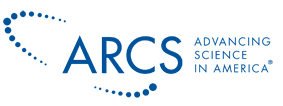After my husband, a physician scientist at the University of Pittsburgh Medical School, died in 1994, I began to work for Claritech, an information science company on Craig Street in Oakland. I was an assistant who wrote occasional press releases. The other 20-some employees worked on automatic text indexing, retrieval, filtering, categorization, and information organization.
I’m a writer — but I was impressed and excited by those eager young scientists. Dr. David Evans, former CMU professor, had founded the company in 1992 with one principal partner and with CMU as a minority participant. (This marked the first time – though not the last – that CMU participated directly in a start-up company.)
Today, I’m still a writer, but the one philanthropy to which I contribute as much money as I can is ARCS (Achievement Rewards for College Scientists). I have heady company: BNY Mellon, Westinghouse Electric, PPG Industries and Mine Safety, to name just a few, have also contributed to ARCS; 100% of their donations have gone directly to ARCS scholars.
ARCS was originally founded in the 1950s in response to Sputnik, and in answer to President Kennedy’s challenge that we be the first to reach the moon. ARCS continues to provide financial awards to outstanding American PhD students in the sciences, chosen by their universities. These students are the future.
Someday, they will open companies like Claritech, some of them in Pittsburgh. They will explore outer space or operate our military equipment, some in Pittsburgh for companies like Westinghouse, GE, General Dynamics or Google. They will become wonderful doctors like my husband, some of them in Pittsburgh.
My husband, Gerhard H. Fromm, MD, came to Pitt from Tulane not only to see patients and teach interns and residents, but also because he’d been promised a laboratory and two full days weekly for research. He developed new drugs for Epilepsy and Trigeminal Neuralgia and studied nerve pain itself. Although he died before he could see his work come to fruition, the basic research that underlay it remains a building block for scientists today.
“I’m drawn toward basic science,” said Callie Norris, one of the 30 students to whom ARCS/Pittsburgh currently gives an annual $5,000 award. “Basic science is crucial to our country’s future, yet badly underrated. So many serendipitous discoveries are the feature of basic science.”
At Pitt, Callie studies the cellular mechanisms of neuronal cell death, with implications for ischemic stroke, Parkinson’s and Alzheimer’s disease. Her ARCS award has helped her present her work at prestigious international conferences, fertile ground for scientific exchange and stimulation. Yet, interestingly, Callie has also made a down payment on a house in Pittsburgh. Perhaps she will stay here, helping our city to prosper.
Another ARCS recipient at Pitt, Mahlon Collins is also working on Alzheimer’s and Lou Gehrig’s disease, studying cells on the molecular biology level. “A Lou Gehrig’s patient has three years to live, Mahlon says. “With that kind of time frame, they have time for only one clinical trial. They’re betting their life. We’d better make it the most informed trial we possibly can.”
Originally from northern Michigan, Mahlon likes Pittsburgh partly because our city emphasizes research and bioscience. “We’re at the cutting edge of neuroscience,” he says. “Last year’s president of the Society for Neuroscience is a Pitt faculty member, and that’s an international society.”
Coincidentally, the current president of the ARCS national organization is also a Pittsburgher. As president of national ARCS, Jeanne Berdik oversees 17 ARCS chapters nationwide. ARCS endowments for scholar awards this year total more than $14 million – more than $80 million during the organization’s history. In Pittsburgh alone, member contributions have reached the $1 million mark this year, so that we may continue to fund students at the three universities with which we have a relationship: Carnegie Mellon University, the University of Pittsburgh, and Penn State University. ARCS members are all volunteers. From members, too, 100% of the money raised for scholar awards goes directly to the scholars.
“We really appreciate that money,” says Mahlon Collins. “Whether we use it as a rainy day fund or for lab equipment or science-related travel, its value is incalculable. Science is a hard road … you focus so intently. If your car breaks down and you need to get your car repaired, it can be very stressful. It’s nice that people recognize and appreciate what you do.”
Someday, these students will give back what they’ve received, in whatever ways they are drawn and in whatever channels their work takes them. Julia Schwarz, PhD student and ARCS awardee at CMU, is working on the Microsoft Kinect project, a camera that sees in three dimensions; Julia is building a user interface toolkit for this camera.
“I’m programming,” she explains. “I’m writing a code that makes a button pressable in a certain way.”
In the 2002 Spielberg film Minority Report, Tom Cruise dramatizes such Kinect technology, his arms seemingly flailing in the air as he makes images appear on a screen. One day, this futuristic work may enable a surgeon with dirty or gloved hands to interact with his computer from the air. Airport travelers may use this touchless technology to perhaps slow or prevent the transmission of germs.
Currently, 134 members in ARCS/Pittsburgh, with Carol Stockman as president, support students like Callie, Mahlon and Julia. Annual dues of $400 are our only obligation, although some members give much more. And we get perks: lectures, field trips, and best of all, the opportunity to meet the students and ask them questions. Interacting with these bright young scholars makes me feel a bit like Christa McAuliffe, who said before the Challenger flight, “I touch the future.”
No one knows the exact shape of the future, for our city or our world. But for sure, science will help build that future. I am very proud to be a member of ARCS, which is helping to fund it. Learn more about ARCS Pittsburgh at http://www.arcsfoundation.org/pittsburgh/


